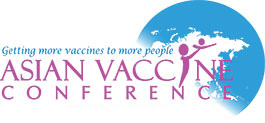SYMPOSIUM 4 – Connect: I get it; but not quite; say huh!?! When Communication is Key!
SYMPOSIUM
10 November 2023
11:00 – 12:20H
Speaker:
H.T. Wickramasinghe
Neville Fernando Teaching Hospital
Description:
Two opposing views create confusion. Once a person is confused, he does not understand what he should do? This is exactly what happens with vaccine hesitancy. Most hesitant parents just don’t know what to do? They either postpone or refuse vaccination. In the era of infodemics, where digital media has taken over all forms of distribution of information, negative effects are exaggerated over obvious benefits of vaccination. A rare side effects reported in a journal or in a newspaper would spread rapidly through digital platforms. Cherry picked research data, misinterpreting findings of a research, deliberate misinformation, anecdotal or hearsay stories against vaccines, religious or other social influences against vaccination, are few tactical strategies used by antivaxxers. Heartfelt stories in the media by so called victimized parents, such as autism after MMR would really entice listening parents. Studies had shown that this story telling in digital media has a very strong impact on vaccine hesitancy. During the COVID-19 pandemic, political motives in some countries made vaccine campaigns harder.
Countering vaccine hesitancy poses a formidable challenge, given the need to engage effectively against dedicated anti-vaccine activists who possess unwavering convictions. However, a glimmer of hope emerges from extensive research conducted across various nations. These studies consistently demonstrate that the majority of parents are inclined to listen of their family physicians and healthcare practitioners when making decisions on vaccinations. Leveraging this insight represents one of the most potent methods to counter the anti-vaccine movement. To achieve this, it is imperative that general practitioners, pediatricians, family physicians and other healthcare workers undergo comprehensive training in communication skills tailored to engage vaccine-hesitant parents. The initial step involves empathetic listening, creating a safe space for parents to voice their concerns about vaccines without provoking confrontation. This approach establishes a foundation for a constructive dialogue. Crucially, healthcare professionals should ensure that parents grasp the significance of vaccination without feeling alienated or disrespected. Truthfulness about potential adverse effects must be balanced with a clear explanation of the manifold benefits that vaccination confers, outweighing any possible drawbacks. To enact this strategy effectively, it is imperative to organize regional or country- level training courses orchestrated by vaccine advocates and professional medical societies for healthcare professionals across the spectrum. This comprehensive training should adopt a global framework championed by the World Health Organization(WHO) and other global partners like UNICEF etc to give a uniform technical approach to all health care workers engage in vaccination in any country.
Using digital media to promote vaccination has shown success in some counties. However, its essential to recognize that the digital landscape is saturated with anti-vaccine content. Consequently, online searches for vaccine information may lead individuals to anti-vaccine websites. In contrast, direct and personalized communication with parents remain the most effective and sustainable strategy to overcome vaccine hesitancy.
